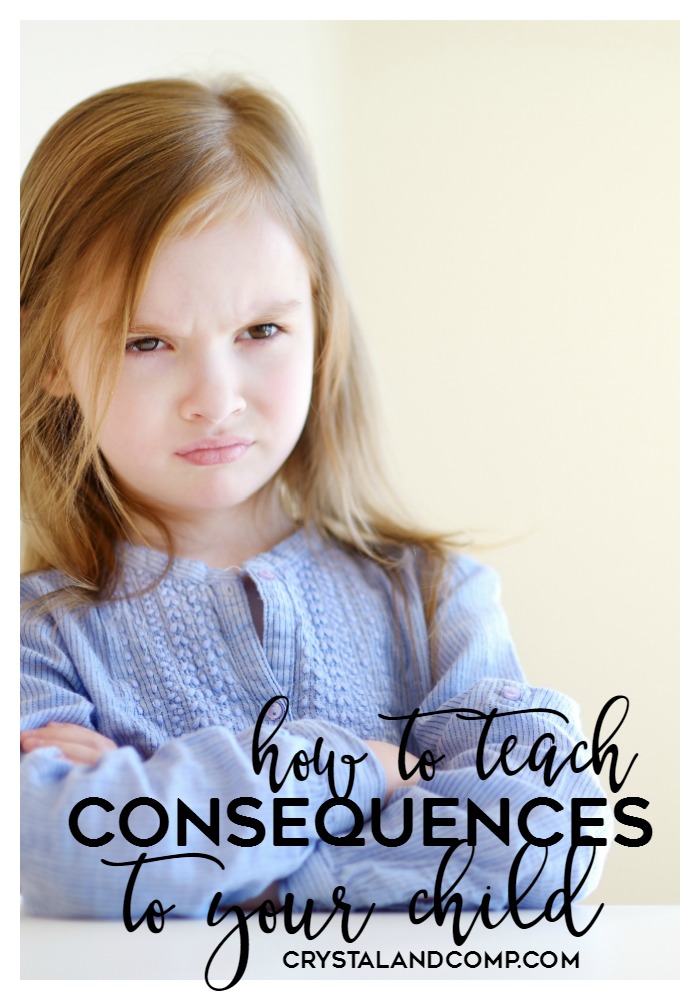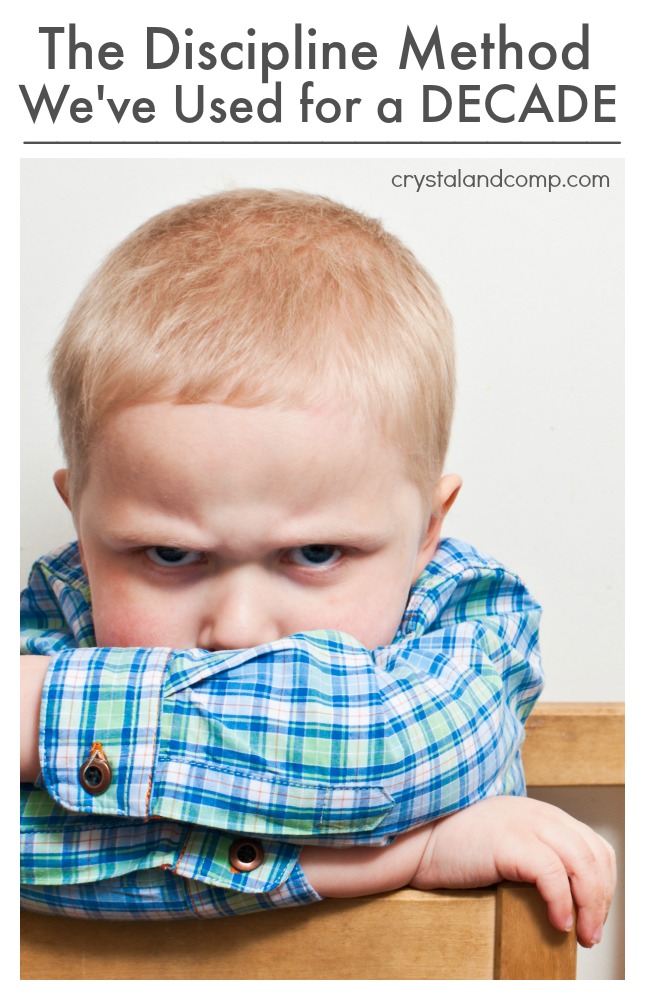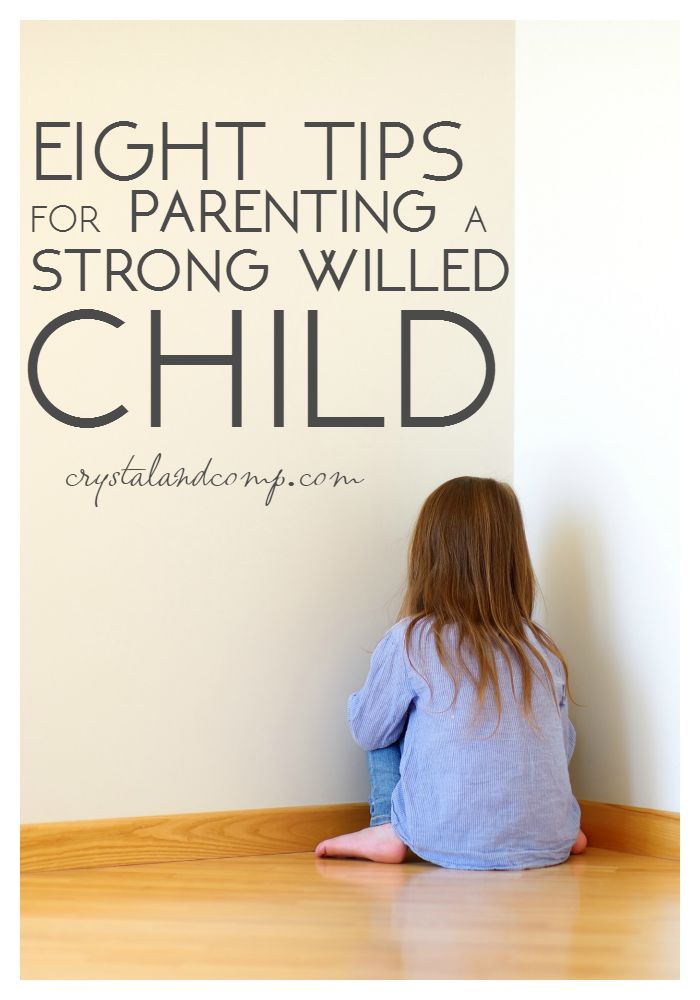How to Teach Your Child Consequences
Consequences. That is a word that children do not want to hear. When my kids misbehave and we talk about their choices and then comes that mean old word consequences… followed by punishment. You would think the whole world is going to come crashing down on their tiny shoulders. On top of that, I am sure many of you can relate with the incessant blaming of others, even the dog, when things go wrong.
The struggle to implement consequences is real, especially when you have a strong willed child. Sometimes we are tired. Sometimes we feel guilty. Sometimes we just want them to be quiet so we give in. In the end the outcome is a disaster.
Your child has to understand what consequences are in the first place. Consequences are not punishment. Consequences follow a behavior, action, or inaction. Consequences, believe it or not, give a lot of room for a child to be provided a learning objective. Here lies the objective of providing them with task oriented consequences rather than time oriented consequences.
The point of consequences is to learn something from their behavior. If you are giving your child time oriented consequences then they are learning nothing and you are stuck with endless complaining and grief throughout the course of time you have implemented.
This does not have to be difficult and the benefits are abundant. Here are some easy ways you can teach your child consequences.
Teach Your Child Consequences
1. Establish cause and effect. Your kiddo has to know where to connect the dots. So help them make a connection. Example: You lost your favorite superhero because it was not put back where it goes.
2. Encourage honesty. The whole blame game is easy for kids. It is also easy for them to avoid the truth in some cases. If your child does something you disapprove of them don;t fly off the handle. They will be more reluctant to avoid the truth if you are a maniac. Keep calm and approachable. Your child will be more comfortable talking about the action.
3. Impose what fits the crime. Make the consequence age appropriate and action appropriate.
4. Stick to your guns. If you are constantly bending the rules out of guilt or avoiding consequences because those alligator tears, begging, and pleading are so convincing you are defeating yourself. We are all guilty of this as I mentioned before. Making it a habit is disastrous.
5. Provide rewards for your child. Sometimes even the most difficult and defiant children will show huge progress when they are rewarded. Simply let them know you acknowledge their good choices and how proud you are of them can go a long way!
6. Once the consequence is over with don’t rehash it! Move on! If you are constantly rehashing you are destroying your child’s self worth.

Consequences implement structure and provide boundaries and limits for your child. Having this type of set up lets your child know throughout their lives they will encounter consequences and rewards for their actions. Consequences prove accountability and also allow them to learn problem solving skills.
What are your best efforts for delivering consequences to your child? Share your thoughts.
More Parenting Help
Parenting a String Willed Child



Excellent article! Teaching children to “own” their behavior through natural consequences is a powerful growth tool. Another huge help to me is making sure children know the expectations we place on them. Making a chart of these and regularly reviewing them really helps when giving consequences. It allows parents/teachers to step back from the emotional/guilt aspect of giving the consequence.
I remember how much I hated that word consequence when I was younger! These are great tips for teaching kids. I can only imagine how hard it is to find the right way to teach kids that their actions can have consequences.
Ah, consequences. Is that the one where you tell them they’re going to their room for life unless they pick up all their toys starting right this minute? I kid, of course! Great article and tips. Parenting isn’t always easy!
I love all of this! I have such a strong-willed 4-year-old and most times I just want to give up. But good thing he isn’t my first because I learned well with my 6-year-old. Such a great article and great advice.
Great tips – it’s hard with kiddos because every single one of them is different. I tend to be more lenient on my kids when they’re honest – not without consequence, but probably less severe because I don’t want them to be terrified of telling the truth — it’s a fine line.
These are all great suggestions/advice! I don’t have any children at the moment, but work with them. I will have to share with my sister! Thanks for posting.
I feel so guilty now, because we are always re-hashing situations with my oldest. Though we do it mostly to warn her not to end up with the same consequence again. Will definitely work on being more consistent. Thanks for the gentle reminders!
Great tips! I find #4 – ‘Stick to your guns’ the hardest to do. Some kids just know how to charm their way out of things. But I know that consistency is definitely important, so although difficult, I do try to ‘stick to my guns’. Thanks for sharing on Toddler Fun Friday.